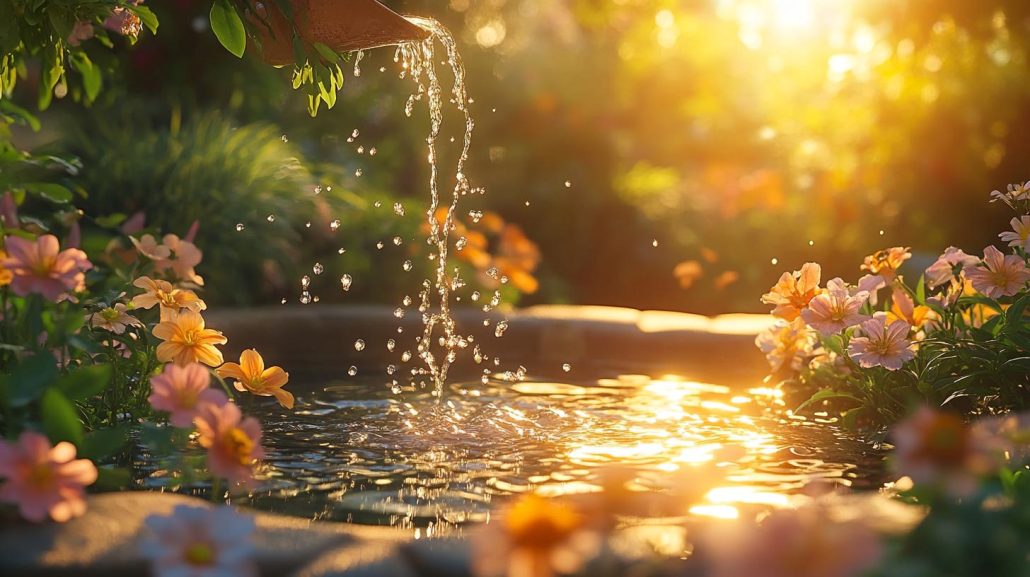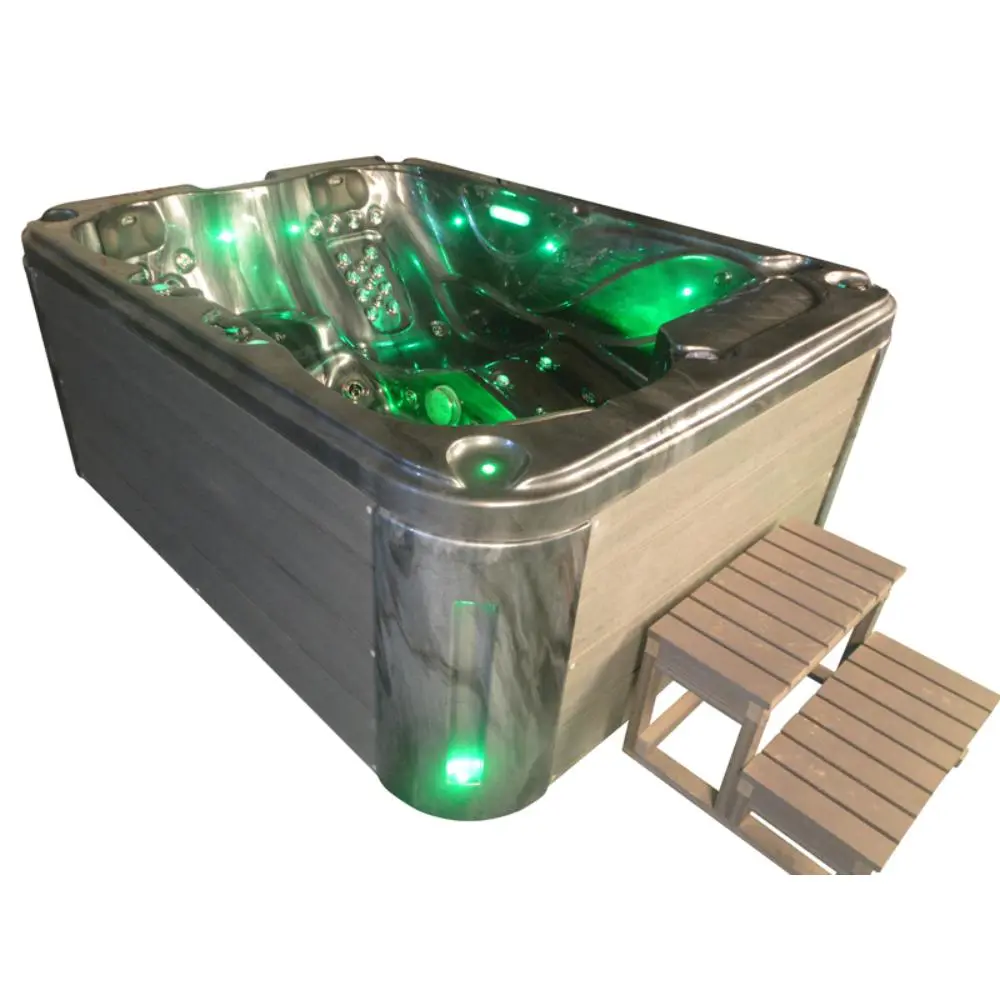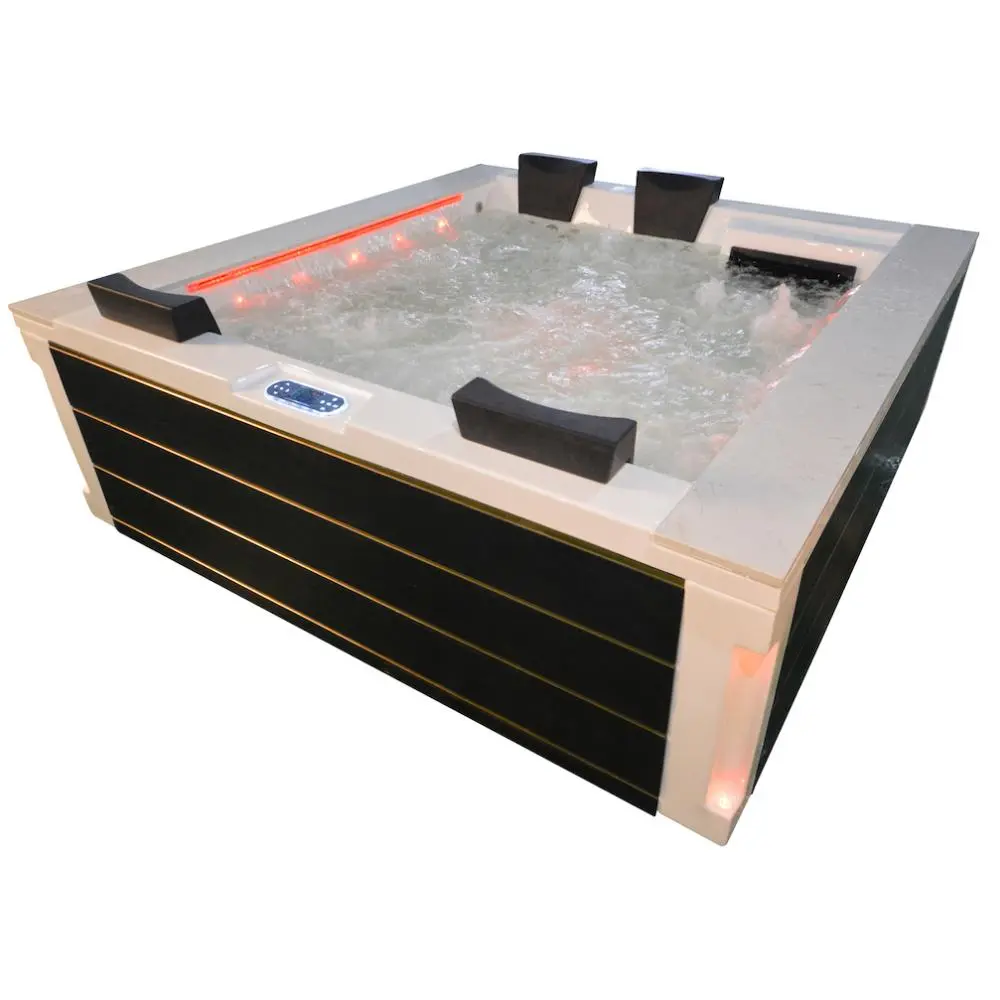Hot tub water is a valuable resource that many people overlook when it’s time to drain their spa. With water conservation becoming a significant concern in many areas of the country, the question arises: Can you use hot tub water to water your garden? This article explores the practicality, benefits, and challenges of reusing hot tub water for plants, offering actionable tips to ensure your garden thrives while protecting the environment.
Why Should You Consider Reusing Hot Tub Water?
Reusing water from your hot tub is not just about saving money—it’s a smart move for water conservation, especially in regions facing droughts or water restrictions. With many areas of the country focusing a great deal of attention on water conservation, repurposing spa water can contribute to sustainable gardening practices. However, before you start watering your plants, it’s essential to understand the chemical components of spa water and how they may impact your garden.

1. What Is Hot Tub Water and Why Recycle It?
Hot tub water is the water used in spas or hot tubs, often treated with chemicals like chlorine or bromine to maintain hygiene. On average, a standard hot tub holds between 300 to 500 gallons of water, which is drained every three to four months.
Why Recycle Hot Tub Water?
- Water Conservation: With many countries experiencing water shortages, recycling spa water prevents wastage.
- Cost-Effectiveness: Reusing spa water can save on your water bill, especially if you have a large garden.
- Sustainability: Recycling water aligns with eco-friendly gardening methods.
2. How Chemical Levels in Spa Water Affect Plants
Hot tub water often contains chlorine, bromine, and other chemical residues that can harm plants if not properly managed. Here’s how these chemicals affect greenery:
| Chemical | Effect on Plants | Safe Level for Use |
| Chlorine | Burns plant roots and leaves | Below 1 ppm |
| Bromine | Toxic in high concentrations | Below 1 ppm |
| pH | Affects nutrient absorption | 6.0 – 7.5 |
Key Considerations
- Test the water before using it on plants to ensure chemical levels are minimal.
- Avoid using water that was recently treated or contains high chemical concentrations.
3. Best Practices for Draining Your Hot Tub Safely
Draining your hot tub is the first step in reusing the water. Follow these guidelines to do it safely:
- Turn Off the Power: Ensure the hot tub is powered off before draining.
- Let It Cool: Allow the water to cool to avoid damaging plants or soil structure.
- Check for Chemical Levels: Use a testing kit to measure chlorine and bromine levels.
4. Preparing Hot Tub Water for Garden Use
Before using spa water on your garden, you’ll need to ensure it’s safe for plants:
- Dechlorinate the Water: Let the water sit for 48-72 hours after draining to allow chemicals to dissipate.
- Dilute with Fresh Water: To further reduce chemical concentrations, mix spa water with fresh water.
- Test the pH: Ensure the pH is within a plant-friendly range of 6.0 to 7.5.
When recycling water, it’s essential to choose the right tools and equipment for optimal results. Whirlpool hot tub suppliers-E210 is designed for wellness and efficiency, ensuring you can safely recycle your spa water for your garden.

5. Which Plants Can Tolerate Spa Water?
Not all plants are created equal when it comes to tolerating treated water. Here are some guidelines:
- Salt-Tolerant Plants: Lavender, rosemary, and other Mediterranean plants are more likely to handle chemical residues.
- Hardy Shrubs: Established shrubs with deep root systems are less sensitive to slight chemical traces.
Avoid using spa water on delicate plants like ferns or seedlings.
6. Where Should You Avoid Using Hot Tub Water?
While hot tub water can benefit many parts of your garden, there are areas where it should be avoided:
- Vegetable Gardens: Chemicals may contaminate edible plants.
- Seedlings and Young Plants: Sensitive to chemical residues.
- Lawns: Repeated use may lead to salt buildup in the soil.
7. Water Conservation Benefits of Reusing Spa Water
Water conservation is becoming a critical issue worldwide. Reusing hot tub water can contribute significantly to reducing overall water consumption:
- According to a study by EPA, 30% of household water use is dedicated to outdoor activities like watering gardens.
- By recycling hot tub water, you can save hundreds of gallons per year.
8. How to Neutralize Chemicals in Hot Tub Water
Neutralizing chemicals is essential before applying spa water to your garden. Here’s how:
- Aeration: Expose the water to air by leaving it uncovered for a few days.
- Use a Neutralizing Agent: Products like sodium thiosulfate can help reduce chlorine levels.
- Add Organic Matter: Mixing the water with compost can help balance pH and neutralize harmful residues.
9. Tips for Smart Watering Practices
Using recycled hot tub water efficiently requires strategic watering practices:
- Water During Cooler Hours: Early morning or late evening reduces evaporation.
- Focus on Roots: Direct water to the base of plants to minimize leaf damage.
- Monitor Soil Health: Test soil regularly to ensure no chemical buildup occurs.
10. Is Reusing Spa Water Legal in Your Area?
Before you start using hot tub water in your garden, check local regulations. Some regions restrict the use of greywater, including spa water, due to contamination concerns. Contact your local environmental agency for guidance.
Image Example

Alt: An outdoor hot tub spa suitable for relaxation and sustainable water use.
Internal Links for Further Reading
- Sauna Room Manufacturer
- Whirlpool Hot Tub Suppliers (E210)
- Massage Spa Wholesalers (E306)
- Hot Tub Spa Manufacturers (E310)
- Massage Bathtub Exporters (HS152)
Key Takeaways
- Always Test Chemical Levels: Ensure chlorine and bromine are within safe ranges before using hot tub water on plants.
- Avoid Using on Edibles: Keep spa water away from vegetable gardens or crops.
- Let Water Sit: Allow chemicals to dissipate naturally by letting the water sit for a few days.
- Check Local Laws: Confirm that reusing hot tub water is permitted in your area.
- Conserve Water: Recycling spa water is an excellent way to contribute to water conservation efforts.
By following these tips, you can reuse hot tub water safely and effectively, enhancing your garden while minimizing waste. For more guidance on how to optimize your water recycling process and ensure maximum efficiency, Professional Bathroom Equipment Manufacturer | Sauna Room, Outdoor Spa, Swimming Spa, Steam Shower Room – Your Export Expert Unlocking Global Markets offers eco-friendly spa solutions with advanced water filtration and sterilization systems. Our outdoor spas are equipped with state-of-the-art filtration and energy-efficient insulation, allowing you to conserve water while maintaining crystal-clear waters. Ready to make a sustainable choice? Contact Veritas Solus today for expert advice and personalized consultation to help you maximize your water conservation efforts and garden health.
Happy gardening!
